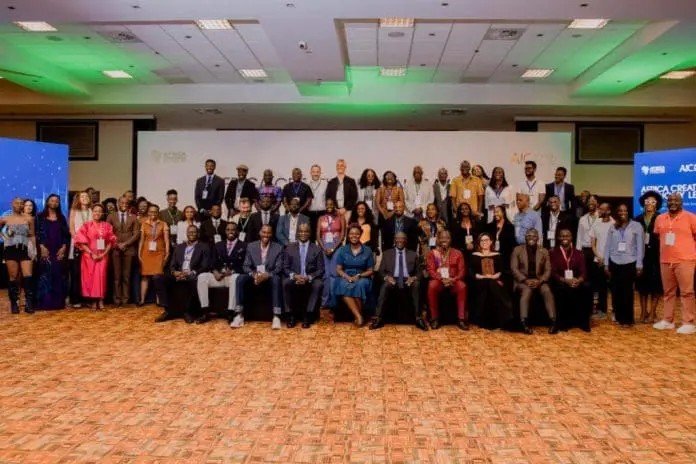The recent Africa Creative Economy Lens (ACEL) 2025 convening in Kigali was a clarion call for Africa to harness its vast cultural and creative industries (CCIs) as a cornerstone for sustainable economic growth. Among the many voices at the event, Uganda’s High Commissioner, Maj. Gen. (Rtd) Robert Rusoke, delivered a striking message: Africa’s creative exports could be worth over $200 billion by 2030, representing up to 10% of global creative exports — a milestone within reach if strategic investments and policies are prioritized today.
“The creative economy in Africa is far more than entertainment,” Maj. Gen. Rusoke emphasized. “It is about identity, innovation, commerce, and above all, socio-economic transformation.” His vision reframes Africa’s creative industries — spanning film, music, fashion, gaming, design, and digital media — as a dynamic engine capable of delivering jobs, trade, and cultural influence on a continental and global scale.
A Realistic Trajectory, Not a Distant Dream
Rusoke’s projection underscores a critical moment for Africa. With the continent’s population expected to account for one in four people globally by 2050, and Sub-Saharan Africa facing a demand for over 70 million new jobs, the creative economy offers one of the most viable pathways to sustainable employment and growth. Yet, this potential remains constrained by challenges such as limited financing access, inadequate policy frameworks, and fragmented data systems.
The ACEL 2025 gathering, co-hosted by the Africa Creatives Alliance (ACA) and Africa in Colors (AIC), sought to tackle these barriers head-on. Over two days, more than 200 stakeholders—including policymakers, investors, creatives, and development partners—engaged in collaborative workshops, panel discussions, and high-level dialogues that explored the intersection of technology, innovation, and creative commerce.
The Power of Strategic Investment and Ecosystem Development
Highlighting the importance of ecosystem design, Japheth Kawanguzi, ACA Board Member, and Founder of MoTIV, described the need for “innovation districts” akin to industrial parks that anchor manufacturing hubs. “A single district can transform a city, but only an alliance of ecosystems can transform a continent,” he stated, echoing Maj. Gen. Rusoke’s call for intentional investment in infrastructure, capacity building, and governance.
Rita Ngenzi, ACA’s Founding Managing Director, reinforced this perspective by declaring creativity a necessity for Africa’s sustainable growth rather than a luxury: “Every job created in film, fashion, music, art, gaming, or design sparks a ripple effect across industries, communities, and borders.” The event spotlighted innovative financing models and policy frameworks designed to unleash this ripple effect on a massive scale.
National Commitment and Continental Ambition
Representing Rwanda’s Ministry of Youth and Arts, Olivier Ngabo emphasized his country’s commitment to integrating creative industries into its national growth strategy, underscoring the role of government in nurturing a thriving creative ecosystem.
“No government, private sector, or creative can succeed in isolation,” Ngabo said. “Together, we must create dignified jobs for Africa’s youth, expand trade, and open global stages for our designers, filmmakers, musicians, and innovators.”
This spirit of collective action resonates with Rusoke’s vision. The projected $200 billion in creative exports is not just a number but a roadmap demanding coordinated efforts across sectors and borders — from policy harmonization under the African Continental Free Trade Area (AfCFTA) to investment in intellectual property protections and market access.
Africa’s Creative Future is Now
As Raoul Rugamba, Founder of Africa in Colors, remarked at ACEL 2025, “Africa’s creative potential represents a trillion-dollar opportunity.” The Kigali gathering has turned that potential into palpable momentum, bridging the gap between promise and practice.
Maj. Gen. (Rtd) Robert Rusoke’s forecast of Africa commanding 10% of global creative exports by 2030 is a beacon guiding policymakers, investors, and creatives alike. By investing strategically in the continent’s creative economy today, Africa can transform cultural expression into a sustainable, inclusive engine for growth — securing jobs, boosting trade, and amplifying its cultural identity on the world stage.
UN Climate Week Kicks Off in Addis Ababa to Boost Solutions and Speed Up Real-World Climate Actions








